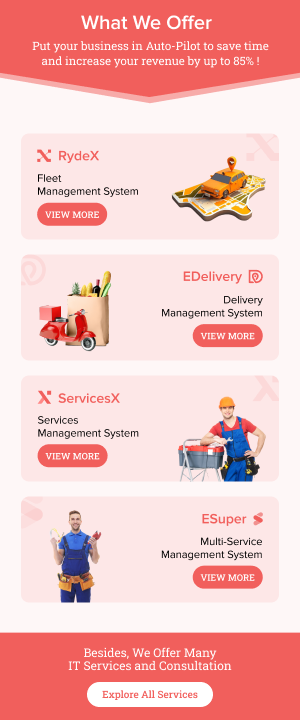
Artificial Intelligence is no longer a technology that requires introduction or explanation. Whether you talk about chatbots or smart home devices, or self-driving cars, AI is omnipresent. These all examples explain how this technology can guide machines to replicate human behavior or even replace them in some instances.
If we talk from the business point of view, then AI and its applications are still in the nascent stage of development, and there is much more room for innovation. We have seen how AI-powered technologies such as chatbots, personalized recommendations, virtual assistance, etc., have been leaving a huge impact on the eCommerce sector. In the same way, the logistics and transportation sectors have also been disrupted by AI.
When we talk about the logistics business, the sector has always been plagued with many deficits. From supply chains to real-time tracking to warehouses, AI is changing how logistics companies move products from one place to another.
AI will enable the logistics industry to convert from reactive to proactive and predictive behaviors, which will lead to higher productivity and better customer service at a reduced cost. Therefore, it’s no wonder why big brands such as Amazon and Google have started harnessing the power of AI.
Advancing Role of the AI in the Logistics Sector
Technology, if appropriately utilized, can make human lives much easier, and the same methodology applies to AI too. The logistics industry has been experiencing major changes since the introduction of AI and ML in this particular sector. AI is powerful and has the capabilities to bring such modifications, from real-time tracking to autonomous vehicles to smart route suggestions; AI is taking the logistics industry to the next level.
AI is everywhere, and brands are implementing this technology to solve some critical issues. According to PwC’s research, AI could share almost $15.7tr to the world economy by 2030.
Now you must be thinking about why enterprises are leveraging AI? A key reason is that it solves some complex issues while saving operational costs.
If AI is implemented correctly, it allows companies to make smarter and agile decisions for a better future. So let’s see what AI brings to the logistics sector and allow brands to get the benefits they envision for.
How Shipping and Logistics Industries Using AI to Enhance Efficiencies

Source: (MarketsandMarkets )
The shipping & logistics industry can benefit from artificial intelligence’s visibility, optimization, and analytical insights. So, let’s look at the role that AI will play with the shipping and logistics industries and how it can automate your business operations without breaking the bank.
Automated Warehouses
The usage of artificial intelligence is becoming more prevalent today in areas such as data collection, analysis, and inventory processing. Through this, AI can help to increase efficiency and profitability in warehouse operations. You can take an example of a leading eCommerce brand, Amazon. Yes, they have laid out a number of computerized barcode stickers within the Amazon Warehouse floors, which enable robots to move from one place to another.
Each product is equipped with a sensor that stops it from interacting with other robots while picking up goods from point A to B. Implementation of AI makes warehouse management easy and offers certain benefits such as
- Simplifies order fulfillment
- Reduces errors
- It makes the order picking and packing process faster
Along with Amazon, another example you can consider is Ocado, England-based online grocery delivery service. Ocado’s robots can even sort grocery products.
Smart Routes
The logistics industry is also turning to artificial intelligence to design smart roads, which could improve road safety and reduce delays caused by poor weather. Smart roads could also speed up deliveries to reduce delays in the supply chain caused by poor weather.
Smart roads are developed with solar panels and LED sensor lights. LED lights alerts drivers about the road conditions in terms of rock, accident, or any other problems. Smart rods share all the important information with the driver and keep them up to date from the changing road situation.
Smart roads are connected to the Internet and can predict traffic volumes and patterns and alert drivers in real-time. Smart roads make deliveries faster, accurate and suggest the most appropriate route to drivers for the smooth and faster delivery of the product.
Predictive Analysis that Limits the Unexpected
Route optimization and network management can be enhanced by applying artificial intelligence, as DHL demonstrated with a machine learning-based tool to forecast air freight transit delays in order to mitigate delays sooner.
This machine learning model analyzes 58 different parameters in internal data and can predict transit time increases/decreases up to a week in advance for effective resource management for real-time alerting.
Create a business metric for each solution, such as to know what success looks like, so you can measure your progress.
Identify Potential Issues and Mitigate Risks
From real-time tracking to scheduled deliveries to communication with drivers, logistics operators are facing more challenges. Here, AI comes to the rescue and allows brands to use advanced routing algorithms that can analyze social media data, traffic patterns, and more to make the delivery process faster, smoother, and safer.
AI Anticipate the Demand and Enhance Customer Experience
In the shipping and logistics industries, AI improves customer experience and allows companies to forecast demand effectively. If the business has limited supplies and high demand, it will lose money. Businesses must estimate the approximate number of products to speed up delivery.
Here AI algorithms can act as a savior; according to Deloitte’s study, it is believed that AI-based tools predict better and beat human specialists. Moreover, AI also improves customer experience as shoppers can know the whereabouts of their goods in real-time. It feels personalized, and consequently, they trust the company more.
Wrap-up
AI has already left sci-fi movies and became a buzzword in the tech industry. AI positively transforms the logistics and shipping industry, from collecting information to automation in warehousing to inventory processing; AI saves operational costs and enhances productivity.
AI has become mainstream in the logistics industries; all you need to do is have strong expertise and robust technical skills to reap boundless AI benefits.








